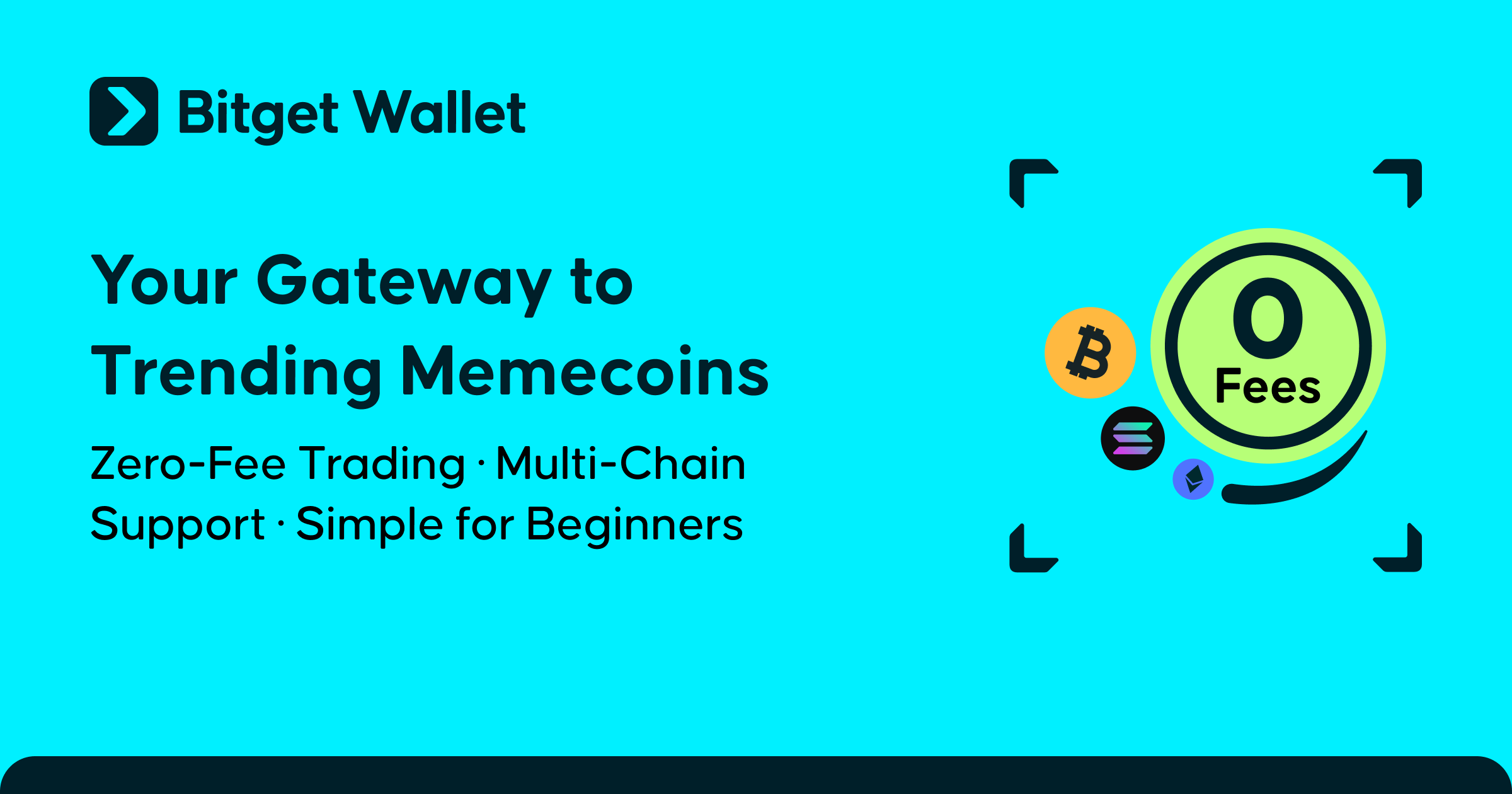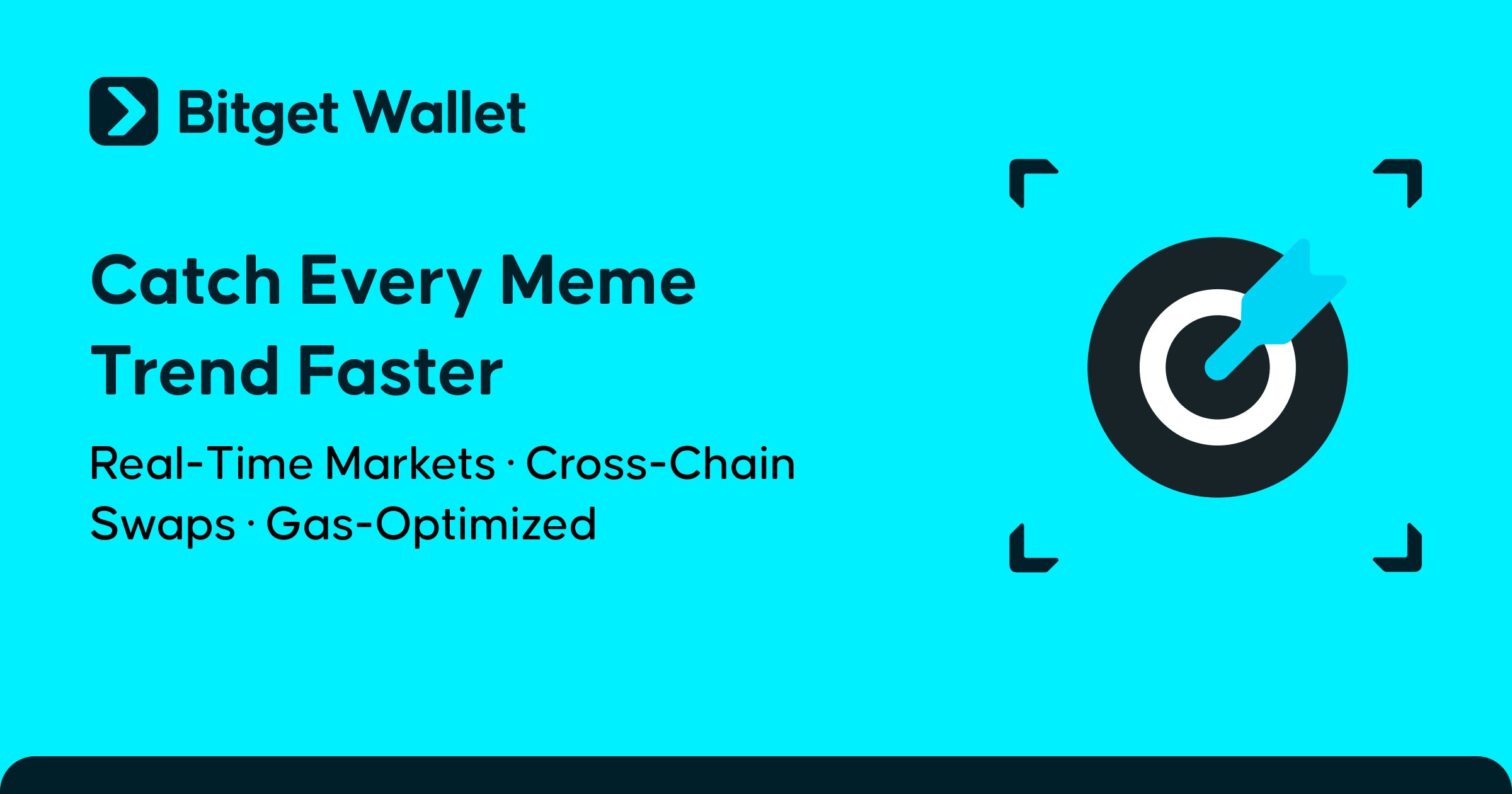What is Google Cloud Universal Ledger (GCUL): Enterprise-Grade Layer-1 Blockchain for Financial Institutions
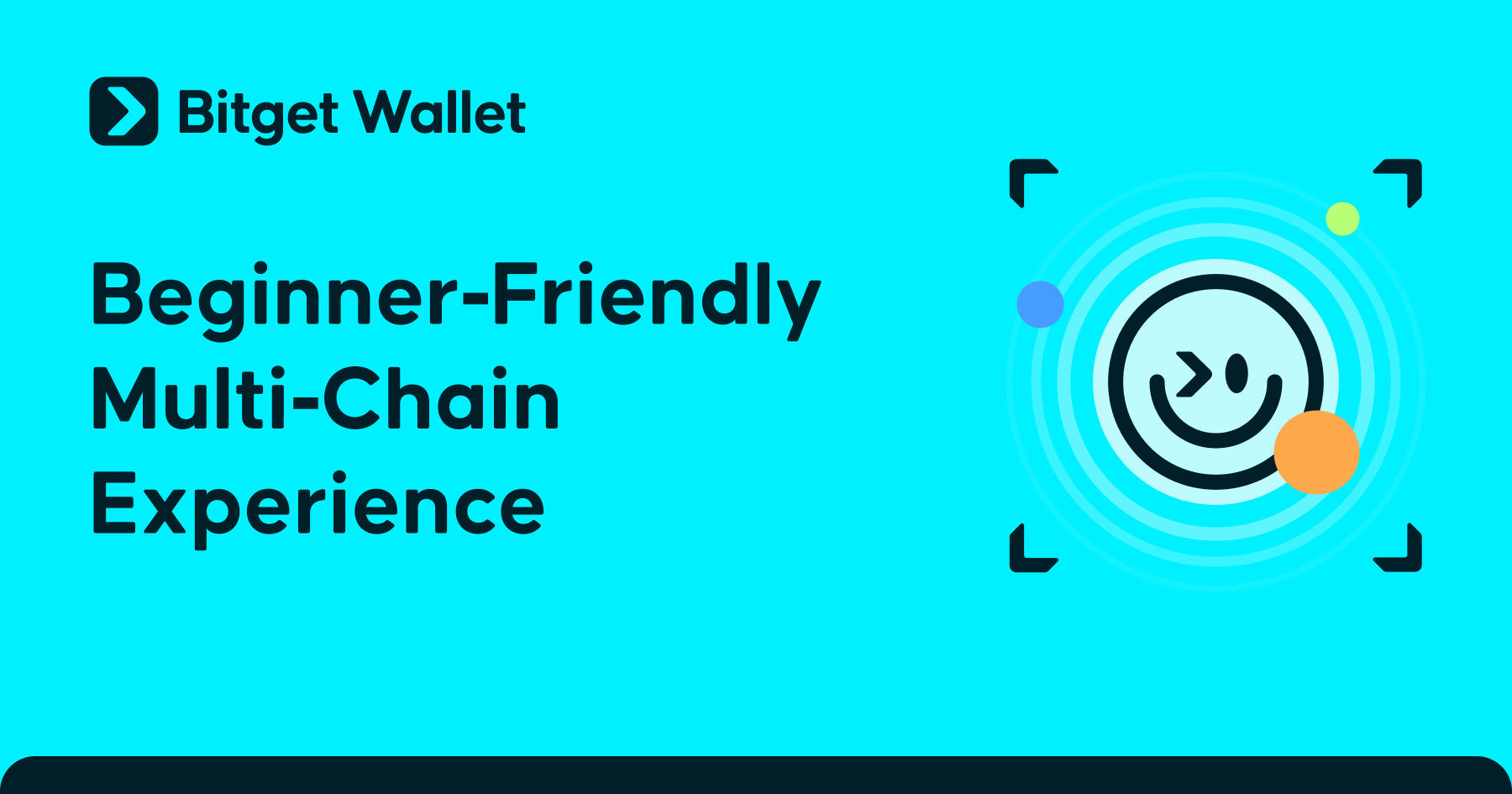
What is Google Cloud Universal Ledger (GCUL)? Google Cloud Universal Ledger (GCUL) carries the values of neutrality, compliance, and financial trust, blending tradition with innovation in the global financial infrastructure space. GCUL uses blockchain technology to bring institutional-grade settlement into the digital asset world. By merging financial heritage with blockchain efficiency, it unlocks fresh possibilities in the digital economy. It both upholds the regulatory rigor of traditional finance and modernizes digital asset applications.
Backed by Google Cloud and partners like CME Group, Google Cloud Universal Ledger (GCUL) is shaping the future of institutional blockchain with atomic settlement and programmable finance. For users, Bitget Wallet delivers secure stablecoin storage, hot memecoin trading, and seamless cross-chain access—a simple way to join the evolving digital economy.
This article breaks down Google Cloud Universal Ledger (GCUL), covering its mission, key features, and potential expansion. If you're looking to understand its role in blockchain, evaluate its institutional relevance, or stay informed about its market influence, this guide has you covered.
Key Takeaways
- Google Cloud Universal Ledger (GCUL) is an enterprise-grade Layer-1 blockchain designed for financial institutions.
- It enables atomic settlement and programmable finance with compliance-first infrastructure.
- Backed by Google Cloud and partners like CME Group, GCUL is shaping the future of institutional blockchain adoption.
What Is Google Cloud Universal Ledger (GCUL): Overview and Key Features
Google Cloud Universal Ledger (GCUL) is Google Cloud’s institutional-grade, Layer-1 blockchain platform designed to bring neutrality, compliance, and programmable finance to traditional financial institutions. It’s built for atomic settlement, tokenization, and 24/7 capital markets infrastructure—without the hassle of public blockchain volatility or vendor lock-in. This isn’t hype; it’s Google aiming to overhaul legacy financial plumbing with programmable ledger efficiency.
Key Features
- Credibly neutral infrastructure – Unlike chains tied to specific ecosystems like Stripe’s Tempo or Circle’s Arc, GCUL positions itself as a shared, vendor-agnostic rail for institutions.
- Python-based smart contracts – Builds on a familiar programming language—no need to hire Solidity or Rust developers.
- Native commercial bank money on-chain – Not just tokenized IOUs, but actual bank money represented on a ledger—a rare feature among institutional chains.
- 24/7 real-time settlement – Strikes at the heart of outdated batch-processing systems like SWIFT, enabling around-the-clock trading and tokenization.
- Permissioned with compliance baked in – Operates on KYC-verified, permissioned infrastructure with stable, predictable costs invoiced monthly.
- Pilot with CME Group already underway – Real-world validation via tokenized asset and wholesale payment trials, paving the way for broader trials and commercial launch.
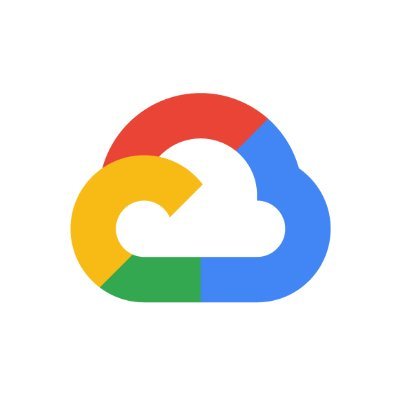
Source: X
Google just ramped up the buzz: GCUL remains in private testnet, spotlighting Python smart contracts, on‑chain commercial bank money, and 24/7 capital market operations. The platform promises to slash cross-border payment costs by up to 70% while challenging legacy systems like SWIFT and even potential rivals like Ripple and Stripe with its neutral, widely accessible design. Google has charted a course toward a 2026 commercial rollout, buttressed by real pilot programs with CME Group—capital markets are watching closely.
Google Cloud Universal Ledger (GCUL) Listing Details and Launch Date
1. Key Listing Information
Here are the important details about the Google Cloud Universal Ledger (GCUL) listing:
- Exchange: NA
- Trading Pair: NA
- Deposit Available: GCUL/USDT
- Trading Start: NA
- Withdrawal Available: NA
Don’t miss your chance to follow the development of Google Cloud Universal Ledger (GCUL) and be part of its groundbreaking journey in institutional blockchain infrastructure.
- Please refer to the official Google Cloud announcements for the most accurate schedule.
Google Cloud Universal Ledger (GCUL) Future Price Outlook: 2025 and Beyond
Market movements, project sustainability, and institutional participation influence the adoption of blockchain infrastructure. While Google Cloud Universal Ledger (GCUL) is not a tradable token, its value lies in its institutional utility and integration into global finance. With strong backing from Google Cloud and early pilots such as the CME Group program, GCUL may become a foundational layer for tokenized assets and cross-border settlement. If adoption sustains and further integrates into capital markets, GCUL has the potential to redefine digital finance on a global scale.
What Affects Google Cloud Universal Ledger (GCUL) Price?
Several factors will influence the perceived “value” and long-term impact of GCUL:
- Investor & Institutional Sentiment: Confidence from banks, clearing houses, and regulators will determine how widely GCUL is adopted.
- Adoption & Demand: The more institutions tokenize assets and seek 24/7 settlement solutions, the stronger GCUL’s position as an infrastructure backbone.
- Regulatory Influence: Compliance frameworks and global policy around digital assets will shape how fast GCUL can expand into new markets.
Future Price Prospects
If Google Cloud Universal Ledger (GCUL) continues to expand within institutional finance, increased adoption could make it the standard for tokenization and real-time settlement by 2026 and beyond. While it cannot be traded like a cryptocurrency, its role as a trusted infrastructure platform may give it lasting economic significance in the digital asset ecosystem.
Source: CoinDesk, Cointelegraph, Bezinga, AInvest, CryptoNinjas
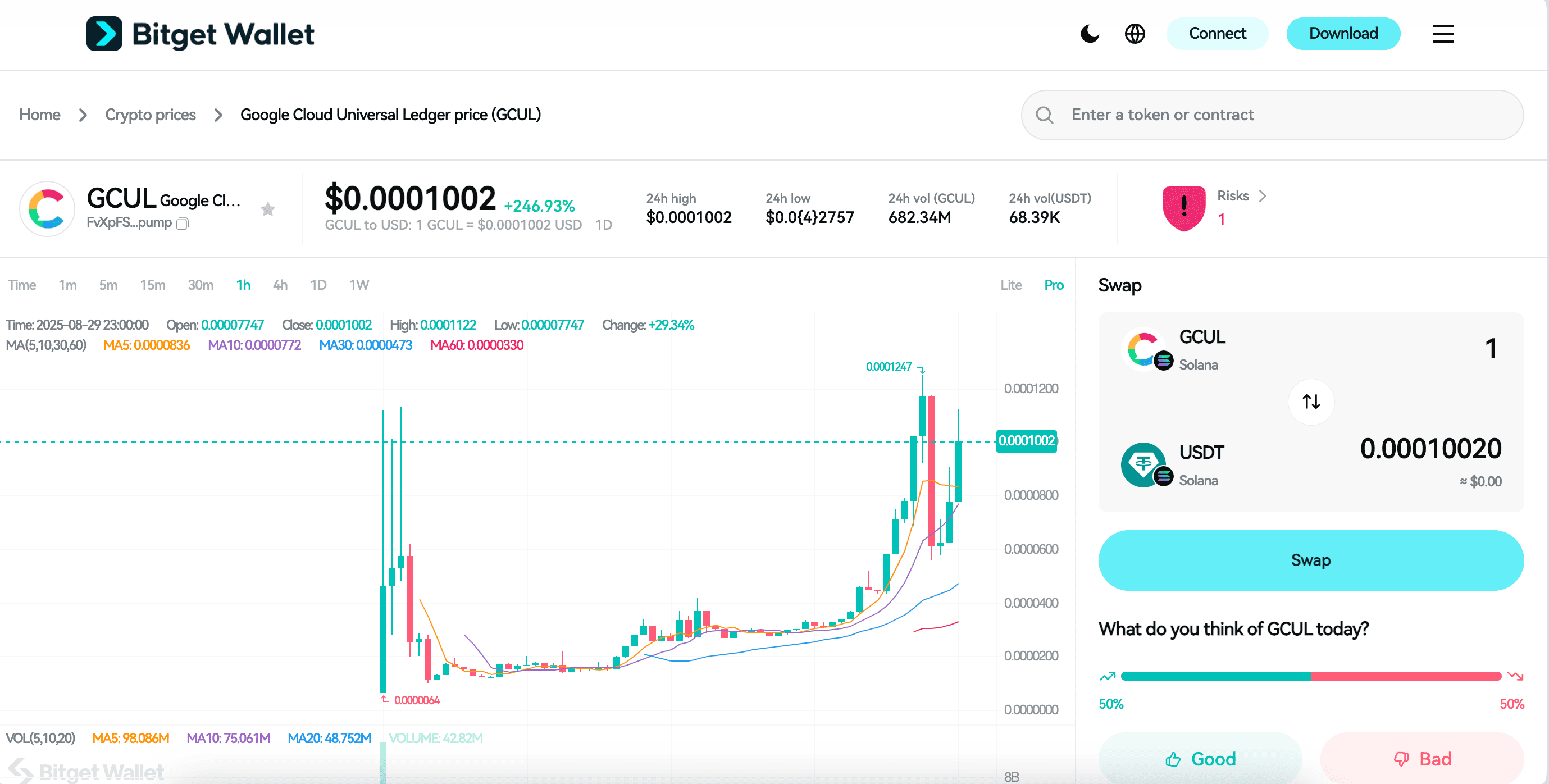
Source: X
Explore Google Cloud Universal Ledger (GCUL) easily with Bitget Wallet — offering Secure Stablecoin Storage, Hot Memecoin Trading, and a Seamless Multi‑chain Experience, all in one beginner‑friendly app.
Core Features of Google Cloud Universal Ledger (GCUL) and Why They Matter?
The standout features of Google Cloud Universal Ledger (GCUL) include:
-
Credibly Neutral, Compliance-First Infrastructure
GCUL is a permissioned blockchain with KYC-verified participants. It removes anonymous actors, offers predictable monthly billing, and ensures institutions can operate within strict regulatory frameworks.
-
Atomic Settlement and 24/7 Capital Markets
Transactions on GCUL settle instantly and finally. This eliminates counterparty risk and allows financial markets to operate continuously, far beyond the limits of systems like SWIFT.
-
Programmable Finance with Python
GCUL supports smart contracts in Python, a widely adopted programming language. This makes it easier for institutions to build and deploy financial applications without learning new blockchain-specific code.
How Google Cloud Universal Ledger (GCUL) Operates and What Benefits It Delivers?
How Google Cloud Universal Ledger Works?
- Built as a Layer-1 institutional blockchain on Google Cloud, providing secure, scalable, and neutral infrastructure.
- Uses a permissioned consensus system with KYC-verified participants, ensuring compliance and institutional trust.
- Supports atomic settlement, tokenization of assets, and programmable finance through Python smart contracts.
Key Benefits
- Regulatory Compliance – GCUL integrates KYC and compliance controls at the core, making it suitable for banks, exchanges, and regulated institutions.
- Instant Settlement – Transactions finalize in real time, eliminating counterparty risk and moving beyond the limitations of legacy systems like SWIFT.
- Ease of Adoption – With Python smart contract support, institutions can innovate quickly without needing specialized blockchain languages, reducing costs and complexity.
The Companies and Organizations Supporting Google Cloud Universal Ledger (GCUL)
The Companies
The primary company behind GCUL is Google Cloud, which developed the ledger as part of its institutional blockchain strategy. As a leading cloud provider, Google Cloud supplies the infrastructure, security, and global reach that give GCUL its enterprise-grade credibility.
The Organization’s Partnerships
One of the most notable early partners is CME Group, the world’s largest derivatives exchange operator. CME Group is piloting GCUL for asset tokenization and wholesale payment settlement, validating its real-world financial use cases. Beyond CME, GCUL is positioned to attract other financial institutions, banks, and clearinghouses looking for neutral, compliance-first blockchain infrastructure.
How They Work Together?
Google Cloud provides the technology and infrastructure, while institutional partners like CME Group bring the market use cases and adoption pathways. Together, they are testing how tokenized assets, real-time settlements, and 24/7 capital markets can function at scale. This collaboration ensures that GCUL is not just a technical innovation but a practical system designed for the needs of global finance.
How Google Cloud Universal Ledger (GCUL) is Used: Practical Benefits
Google Cloud Universal Ledger (GCUL) is designed for institutional finance rather than retail crypto trading. It is used to enable atomic settlement of financial transactions, removing reconciliation delays and counterparty risks. GCUL supports the tokenization of assets such as bonds, payments, and commercial bank money, allowing institutions to digitize and settle assets in real time. It also enables 24/7 capital markets, giving financial systems the ability to operate continuously instead of being limited by legacy schedules like SWIFT.
Google Cloud Universal Ledger (GCUL)’s Benefits
- Efficiency in Settlements – Transactions finalize instantly, reducing costs and risks compared to traditional clearing systems.
- Trusted Compliance – Built-in KYC and permissioned access make it suitable for regulated institutions and global financial entities.
- Innovation Through Programmability – Python smart contract support allows banks and enterprises to create programmable finance solutions quickly, without needing specialized blockchain developers.
Google Cloud Universal Ledger (GCUL) Roadmap 2025: Key Milestones and Expansion Plans
The roadmap for Google Cloud Universal Ledger (GCUL) outlines a clear path for institutional adoption and innovation:
| Quarter | Roadmap |
| Q1 2025 | Internal pilot testing with select institutional partners, focused on tokenization of assets and atomic settlement. |
| Q2 2025 | Broader pilot phase launched with CME Group, exploring wholesale payment settlement and tokenized financial products. |
| Q3 2025 | Expansion of pilot programs to additional financial institutions and regulators, preparing infrastructure for a 2026 commercial rollout. |
These applications highlight the practical value of GCUL in the financial services industry, where it addresses settlement inefficiencies, enables tokenization of real-world assets, and builds compliance-ready digital infrastructure for capital markets.
How to Buy Google Cloud Universal Ledger (GCUL) on Bitget Wallet?
Trading Google Cloud Universal Ledger (GCUL) is easy on Bitget Wallet. Follow these simple steps to get started:
Step 1: Create an Account
If you don't currently have an account, install the Bitget Wallet app. Register by inputting the required details and confirming your identity.

Step 2: Deposit Funds
After setting up an account, you must deposit money. You can do this by:
- Transferring Cryptocurrency: Transfer crypto from a different wallet.
- Purchasing Crypto: Utilize a credit or debit card to buy crypto directly from Bitget Wallet, making sure you have sufficient capital for trading Google Cloud Universal Ledger (GCUL).

Step 3: Find Google Cloud Universal Ledger (GCUL)
On the Bitget Wallet platform, go to the market area. Search for Google Cloud Universal Ledger (GCUL) using the search function. Click on the token to access its trading page.
As this token has not been listed yet, please look at the last contract address sent by the project team upon listing of the token.
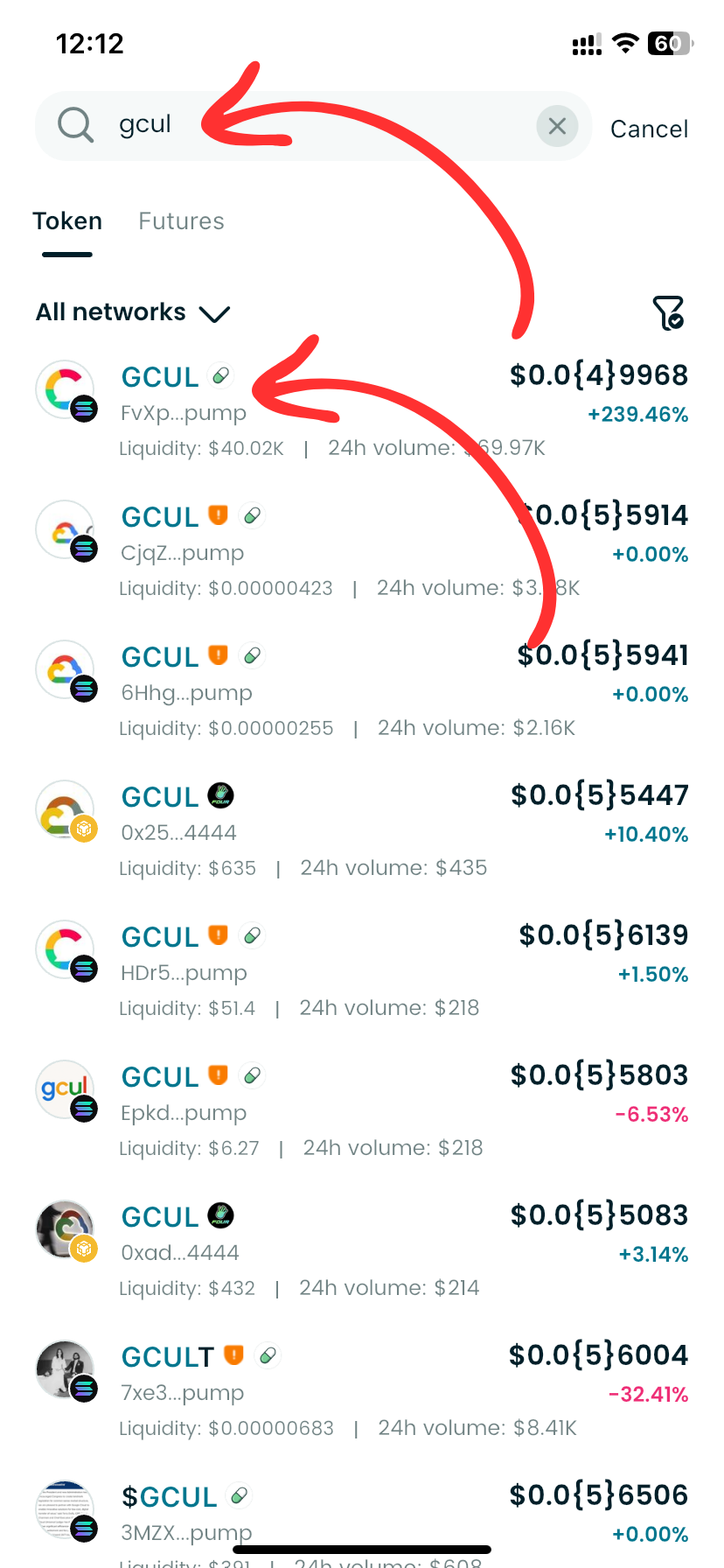
Step 4: Choose Your Trading Pair
Select your trading pair you would like to deal with, for instance, GCUL/USDT. By doing this, you will be able to exchange Google Cloud Universal Ledger (GCUL) for USDT or any other cryptocurrency.
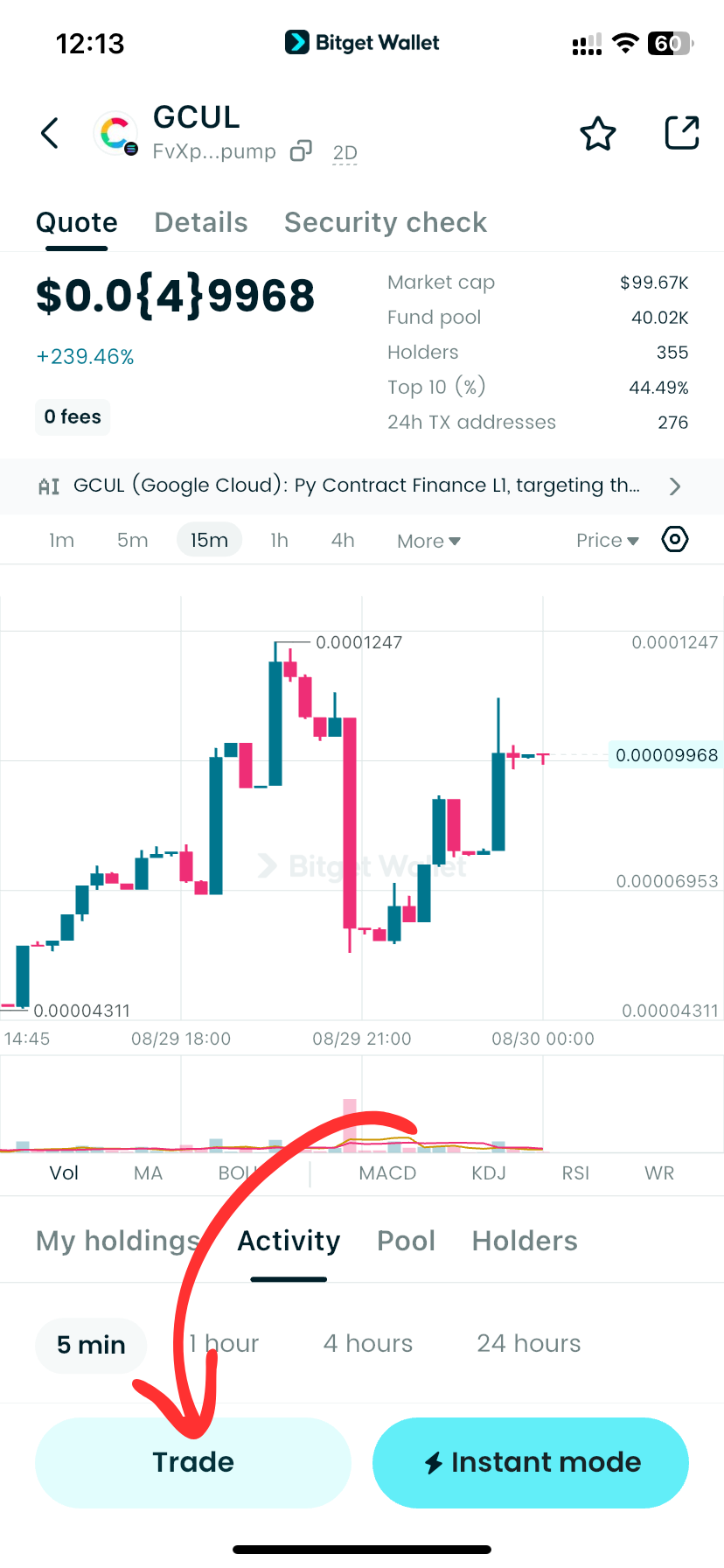
Step 5: Place Your Order
Choose whether to carry out a market order—either buy or sell at the prevailing rate—or place a limit order at your desired price. Fill in the amount of Google Cloud Universal Ledger (GCUL) you want to exchange, then proceed to confirm in order to complete the trade.
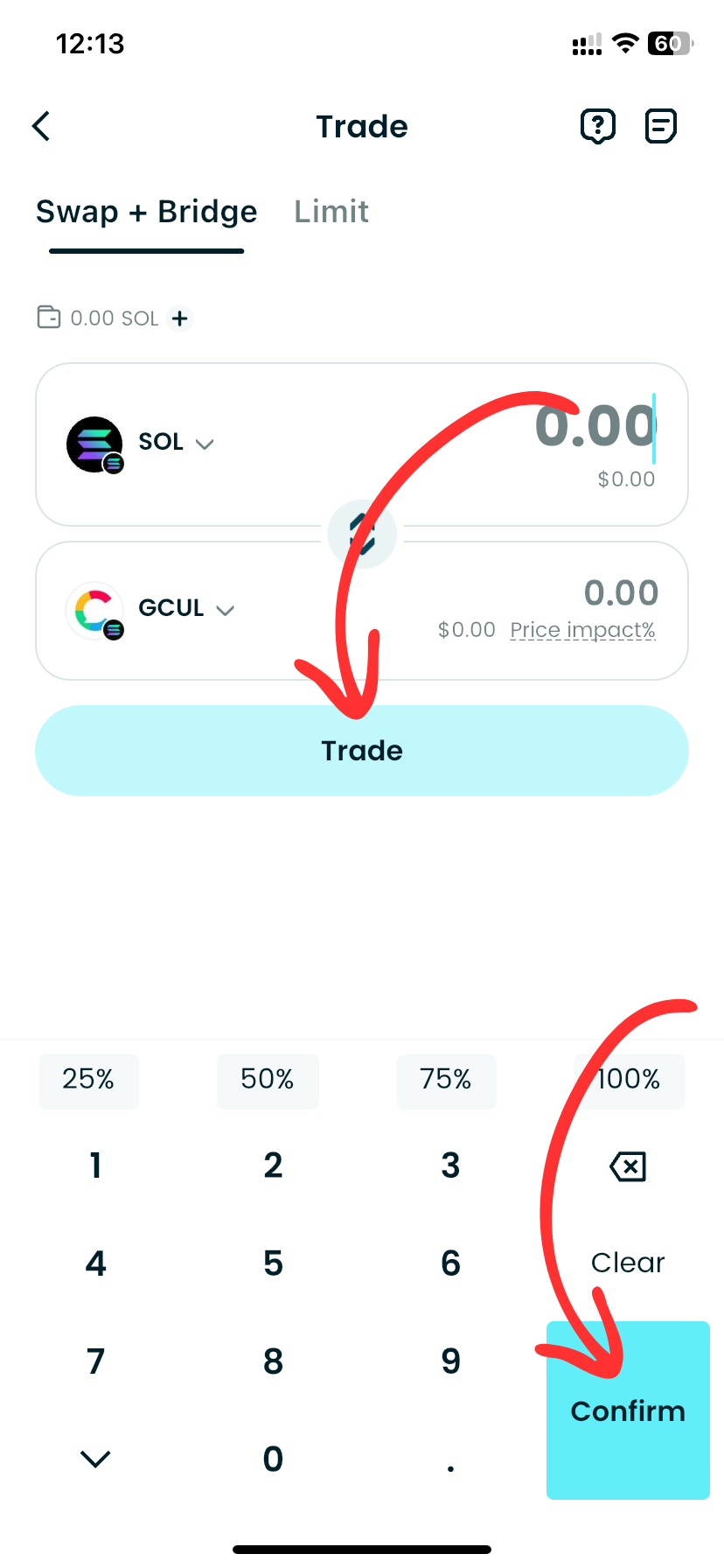
Step 6: Monitor Your Trade
Once you have ordered, you can track the status of your order under "Open Orders." Upon completion of the order, you can view your balance to see the newly purchased Google Cloud Universal Ledger (GCUL).
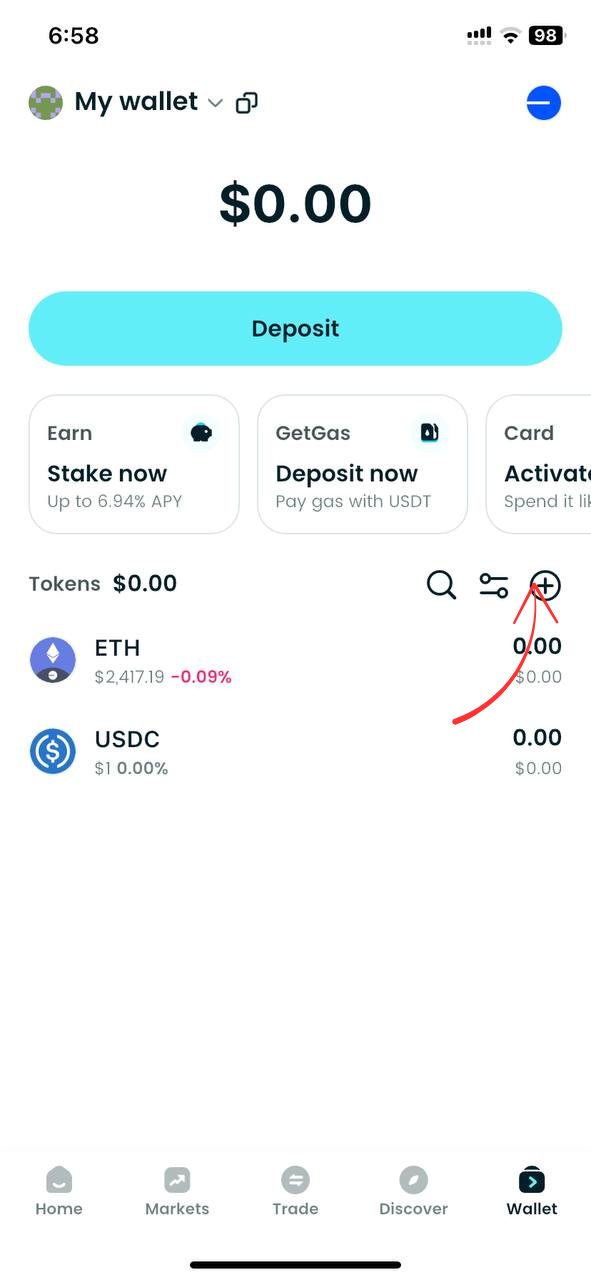
Step 7: Withdraw Your Funds (Optional)
If you want to transfer your Google Cloud Universal Ledger (GCUL) or any other cryptocurrency to another wallet, go to the withdrawal section, provide your wallet address, and confirm the transaction.
Conclusion
Google Cloud Universal Ledger (GCUL) is not just another blockchain project — it’s a compliance-first, enterprise-grade infrastructure designed to reshape financial markets through atomic settlement, asset tokenization, and 24/7 operations. Backed by Google Cloud and piloted with CME Group, GCUL represents a future where financial systems are faster, more transparent, and programmable in ways legacy infrastructure simply cannot match.
While GCUL itself is not a tradable token, understanding its role highlights the growing importance of blockchain in institutional finance. For investors and crypto users exploring opportunities, Bitget Wallet remains one of the most reliable gateways to the digital asset world. It offers secure storage, seamless swaps, and access to a wide range of tokens — all within a beginner-friendly interface. Manage all your tokens in one easy app — download Bitget Wallet today and stay ready for the future of digital finance.
Sign up Bitget Wallet now - grab your $2 bonus!
FAQs
1. What is Google Cloud Universal Ledger (GCUL)?
GCUL is a Layer-1 blockchain platform developed by Google Cloud. It is built for financial institutions to enable atomic settlement, asset tokenization, and 24/7 capital markets.
2. When will Google Cloud Universal Ledger (GCUL) launch?
GCUL is currently in pilot testing with CME Group and other partners throughout 2025. The full commercial rollout is expected in 2026, making it a future backbone for institutional blockchain adoption.
3. Who is supporting and using GCUL?
GCUL is backed by Google Cloud and is being piloted with CME Group, the world’s largest derivatives exchange. More financial institutions are expected to join ahead of its commercial rollout.
Risk Disclosure
Please be aware that cryptocurrency trading involves high market risk. Bitget Wallet is not responsible for any trading losses incurred. Always perform your own research and trade responsibly.
- What Is a Multi-Chain Wallet?2026-02-13 | 5 mins







